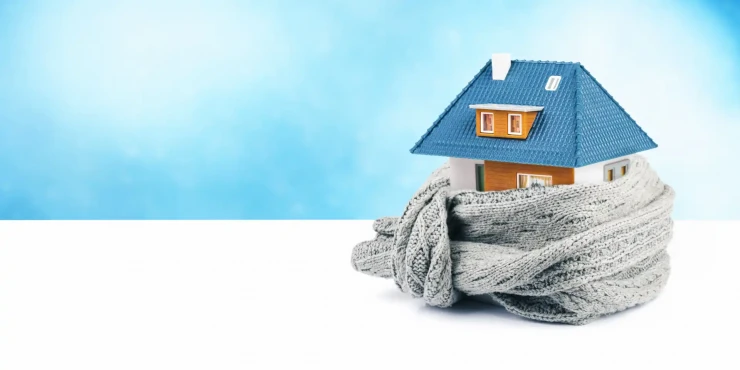Renewable energy has experienced impressive growth over the past few years. However, as more people rely on these technologies, some concerns about their reliability have started to arise. One of the most prominent of these is “dunkelflaute.”
What Is Dunkelflaute?
Dunkelflaute is a German word referring to a period of winter weather with low light and little to no wind. It’s a fairly common phenomenon in Northern Europe, occurring between 50 and 100 hours each November, December and January. While these cold, dark windless spells aren’t necessarily anything new, they’re all the more concerning due to the growing popularity of renewable energy.
As daylight and wind become increasingly limited, solar power and turbines won’t be able to produce as much electricity. To compound the issue, dunkelflaute events coincide with times when people are likely to use more energy. Buildings must turn up the heat to prevent freezing and ruptured pipes, and people will run their lights for longer periods in the absence of sunlight.
Because wind and solar systems can’t generate electricity on demand, these cold snaps could jeopardise their reliability. Some fear this situation leaves nations with the unpleasant choice of either going without sufficient power or turning back to fossil fuels.
Rising gas prices and coal power’s declining availability in the wake of the green energy surge could exacerbate the situation. Blackouts may become more likely, and electricity bills may rise. On top of their effect on residents, these changes may hinder public favour of renewable power.
COMPARE PRICES FROM LOCAL INSTALLERS
Compare prices from local companies fast & free
Enter your postcode to compare quotes from leading professionals. We promise to keep your information Safe & Secure. Privacy Policy
How Dunkelflaute Could Revitalise the Renewable Surge
Dunkelflaute is a concerning prospect for renewables, but it doesn’t have to stand in their way. On the contrary, these events and their potential impact could give new life to renewable power research, which must advance to mitigate dunkelfaute’s worst effects.
Renewables must become more reliable to support wide-scale usage, and fears over dunkeflaute-driven outages may spur that change. They could stimulate operators to install smart transformers across the grid, especially in areas mostly powered by renewables. These technologies would distribute energy according to in-the-moment needs, conserving power and preventing outages.
Dunkelflaute-related concerns could also drive improvements in solar and wind technologies themselves. Some studies have already suggested the possibility of solar panels that work at night, and further research could make them a reality. Similarly, the need for more resilience could drive innovations in other alternative energy sources like nuclear and hydrogen power.
The Role of Energy Storage in Surviving Dunkelflaute
One particularly crucial technology for surviving dunkelflaute is energy storage. Regardless of other innovations that may emerge, nature-dependent power sources need to store the electricity they generate to be reliable. Dwindling generation in dunkelflaute would be less of a concern if grids could capture and later deliver excess energy from sunny or windy seasons.
Pumped hydro is one of the most promising storage technologies. By 2025, more than half of new European hydropower capacity additions will be pumped storage facilities. These technologies’ wide availability, familiarity and relatively low cost make them ideal candidates for short-term storage expansions.
Batteries, hydrogen fuel cells and thermal storage also hold promise. These technologies may need more work and research to unlock their full potential but expanding hydropower in the meantime can help sustain energy grids until they do. As dunkelflaute concerns loom, they could revitalise research in these areas.
Poor Weather Is a Challenge but Not the End of Renewables
Dunkelflaute poses a significant obstacle, but that challenge can also be an opportunity. These weather events could help extend the clean power surge if governments, businesses, and consumers take it as inspiration to drive renewable energy development.
Renewable power is a complex but necessary issue. Enabling it nationally will require addressing challenges like dunkelflaute, but success in that endeavour will enable needed long-term improvements.
by Jane Marsh




























